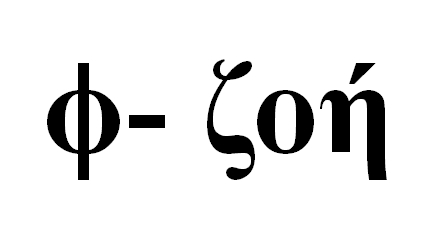Team:Colombia/Human/SynthEthics
From 2012.igem.org
(→Participation in the Sabana University's First Philosophy and Biosciences Workshop) |
(→Participation in the Sabana University's First Philosophy and Biosciences Workshop) |
||
| Line 15: | Line 15: | ||
As another attempt to spread the principles of synthetic biology into diverse social populations, we accepted an invitation from the [http://www.unisabana.edu.co/ Sabana University] located in Chía, Colombia to the [http://www.unisabana.edu.co/nc/la-sabana/campus-20/noticia/articulo/primer-workshop-filosofia-y-biociencias-facultad-de-filosofia-y-ciencias-humanas/ first philosophy and biosciences workshop] (11, 12, and 13th of June). The main focus of this event was to address the concepts of “complexity and emergency” from both stand points, as well as to generate very much forgotten dialogues between philosophers and scientists. The main guests ranged from local representatives of the scientific community, to expert philosophers from Spain and Poland. Some of these special guests were [http://investigacion.us.es/sisius/sis_showpub.php?idpers=1210 Prof. Juan Arana], an expert in Philosophy and Contemporary Culture from the Universidad De Sevilla in Spain, [http://201.234.78.173:8081/cvlac/visualizador/generarCurriculoCv.do?cod_rh=0000268186 Dr. Fernando Lizcano], an Endocrinnology specialist from Universidad de la Sabana, Colombia, [http://www.unav.es/adi/servlet/Cv2.ara?personid=33807&pagina=8962&action=ver_pagina&cambia_idioma=2 Prof. José Murillo], an subdirector of the Anthropology and Ethics Institute of the Universidad de Navarra, Spain, among others. | As another attempt to spread the principles of synthetic biology into diverse social populations, we accepted an invitation from the [http://www.unisabana.edu.co/ Sabana University] located in Chía, Colombia to the [http://www.unisabana.edu.co/nc/la-sabana/campus-20/noticia/articulo/primer-workshop-filosofia-y-biociencias-facultad-de-filosofia-y-ciencias-humanas/ first philosophy and biosciences workshop] (11, 12, and 13th of June). The main focus of this event was to address the concepts of “complexity and emergency” from both stand points, as well as to generate very much forgotten dialogues between philosophers and scientists. The main guests ranged from local representatives of the scientific community, to expert philosophers from Spain and Poland. Some of these special guests were [http://investigacion.us.es/sisius/sis_showpub.php?idpers=1210 Prof. Juan Arana], an expert in Philosophy and Contemporary Culture from the Universidad De Sevilla in Spain, [http://201.234.78.173:8081/cvlac/visualizador/generarCurriculoCv.do?cod_rh=0000268186 Dr. Fernando Lizcano], an Endocrinnology specialist from Universidad de la Sabana, Colombia, [http://www.unav.es/adi/servlet/Cv2.ara?personid=33807&pagina=8962&action=ver_pagina&cambia_idioma=2 Prof. José Murillo], an subdirector of the Anthropology and Ethics Institute of the Universidad de Navarra, Spain, among others. | ||
| - | [[File:elowitz.jpg|thumb| | + | [[File:elowitz.jpg|thumb|250px|Illustration from around 1882 by S. Barth for the original Goethe's Poem]]For this particular audience, we elaborated a different style of lecture, based in a presentation given by Stanford’s [http://en.wikipedia.org/wiki/Drew_Endy Prof. Drew Endy] during a [http://events.embo.org/12-synthetic-biology/ synthetic biology EMBO workshop] in Buenos Aires, Argentina last April. We skipped the basic biology and molecular biology sections of our usual formula, and decided to focus into the technical, scientific, and social ambitions of synthetic biology. We discussed how the scientific perspective to an emergent technology may be different from the general public political ones, and how interdisciplinary projects together with philosophy may strengthen bioethical initiatives. As always, we followed with a short overview of our project aims and methods. As a means to address the main topics of the workshop, our main point was extracted from the words of Caltech’s [http://en.wikipedia.org/wiki/Michael_Elowitz Michael Elowitz] (Elowitz & Lim, 2010): “''Build life to understand it''”. We proposed synthetic biology as an alternative to understand life and what makes us human, and purposely used expressions such as “create life” or “produce organisms” in order to generate philosophical debates regarding our way to address complexity. We proposed the idea that synthetic biology may stand as a vanguard discipline in the way in which we think about life. Instead of limiting biology’s concern with past and present life forms, synthetic biology may be making an important step forwards into thinking about the organisms that may be. We also stated how the gap between engineering and biology is rapidly shortening, and discussed if philosophy and science may merge again in the future in a similar way. |
Revision as of 20:48, 26 October 2012
Template:Https://2012.igem.org/User:Tabima
Contents |
SynthEthics - A Phylosophical Debate
Introduction
Emerging technologies must not forget to have a clear bioethical stand, and synthetic biology should be no different. Advances in this field may open the door to engineering living systems in a similar way we design new dishwashers, computers or spaceships, and may certainly improve our life quality. However, we are talking about the same engineering has created sophisticated weapons, tanks, and the atomic bomb: synthetic biology could be used for good or bad. Even though we may expect huge benefits from it, there are risks. One major concrete concern refers to the possibility of purposely designing pathogenic strains as a tool for bioterrorism. What was fiction a decade ago, namely the creation of a target population specific pathogen, may aid from advances in tumor specific therapies and recent improvements in DNA synthesis and become a real weapon for xenophobism. To address all these issues, different bodies, agents and organizations have started lively discussions and actions against the potential risks of synthetic biology (discussed on the [http://syntheticbiology.org/SB2.0/Biosecurity_and_Biosafety.html internet site] of the US synthetic biology. Both in the US and in the EU several forums for discussion and documents regarding Biosafety have appeared ([http://www.jcvi.org/research/synthetic-genomics-report/ JCVI Synthetic Genomics - Options for Governance]; [http://www.rathenau.nl/en.html Rathenau Institut]; [http://openwetware.org/wiki/Synthetic_Society/Community_Organization_and_Culture OpenWetWare]). In the case of the EU, some research projects have been funded to analyze the impact and safety problems of Synthetic Biology in Europe ([http://www.synbiosafe.eu SYNBIOSAFE]; [http://www2.spi.pt/synbiology/ SYNBIOLOGY]) (Serrano, 2007). In this way, the success of synthetic biology will depend on its capacity to surpass traditional engineering, blending the best features of natural systems with artificial designs that are extensible, comprehensible, user-friendly, ethical, and most importantly implement stated specifications to fulfill user goals (Andrianantoandro et al., 2006).
Participation in the Sabana University's First Philosophy and Biosciences Workshop
As another attempt to spread the principles of synthetic biology into diverse social populations, we accepted an invitation from the [http://www.unisabana.edu.co/ Sabana University] located in Chía, Colombia to the [http://www.unisabana.edu.co/nc/la-sabana/campus-20/noticia/articulo/primer-workshop-filosofia-y-biociencias-facultad-de-filosofia-y-ciencias-humanas/ first philosophy and biosciences workshop] (11, 12, and 13th of June). The main focus of this event was to address the concepts of “complexity and emergency” from both stand points, as well as to generate very much forgotten dialogues between philosophers and scientists. The main guests ranged from local representatives of the scientific community, to expert philosophers from Spain and Poland. Some of these special guests were [http://investigacion.us.es/sisius/sis_showpub.php?idpers=1210 Prof. Juan Arana], an expert in Philosophy and Contemporary Culture from the Universidad De Sevilla in Spain, [http://201.234.78.173:8081/cvlac/visualizador/generarCurriculoCv.do?cod_rh=0000268186 Dr. Fernando Lizcano], an Endocrinnology specialist from Universidad de la Sabana, Colombia, [http://www.unav.es/adi/servlet/Cv2.ara?personid=33807&pagina=8962&action=ver_pagina&cambia_idioma=2 Prof. José Murillo], an subdirector of the Anthropology and Ethics Institute of the Universidad de Navarra, Spain, among others.
For this particular audience, we elaborated a different style of lecture, based in a presentation given by Stanford’s [http://en.wikipedia.org/wiki/Drew_Endy Prof. Drew Endy] during a [http://events.embo.org/12-synthetic-biology/ synthetic biology EMBO workshop] in Buenos Aires, Argentina last April. We skipped the basic biology and molecular biology sections of our usual formula, and decided to focus into the technical, scientific, and social ambitions of synthetic biology. We discussed how the scientific perspective to an emergent technology may be different from the general public political ones, and how interdisciplinary projects together with philosophy may strengthen bioethical initiatives. As always, we followed with a short overview of our project aims and methods. As a means to address the main topics of the workshop, our main point was extracted from the words of Caltech’s [http://en.wikipedia.org/wiki/Michael_Elowitz Michael Elowitz] (Elowitz & Lim, 2010): “Build life to understand it”. We proposed synthetic biology as an alternative to understand life and what makes us human, and purposely used expressions such as “create life” or “produce organisms” in order to generate philosophical debates regarding our way to address complexity. We proposed the idea that synthetic biology may stand as a vanguard discipline in the way in which we think about life. Instead of limiting biology’s concern with past and present life forms, synthetic biology may be making an important step forwards into thinking about the organisms that may be. We also stated how the gap between engineering and biology is rapidly shortening, and discussed if philosophy and science may merge again in the future in a similar way.
References
- Andrianantoandro, E., Basu, S., Karig, D. K., & Weiss, R. (2006). Synthetic biology: new engineering rules for an emerging discipline. Molecular systems biology, 2, 2006.0028. doi:10.1038/msb4100073
- Elowitz, M., & Lim, W. A. (2010). Build life to understand it. Nature, 468(7326), 889–90. doi:10.1038/468889a
- Serrano, L. (2007). Synthetic biology: promises and challenges. Molecular systems biology, 3(158), 158. doi:10.1038/msb4100202
 "
"


